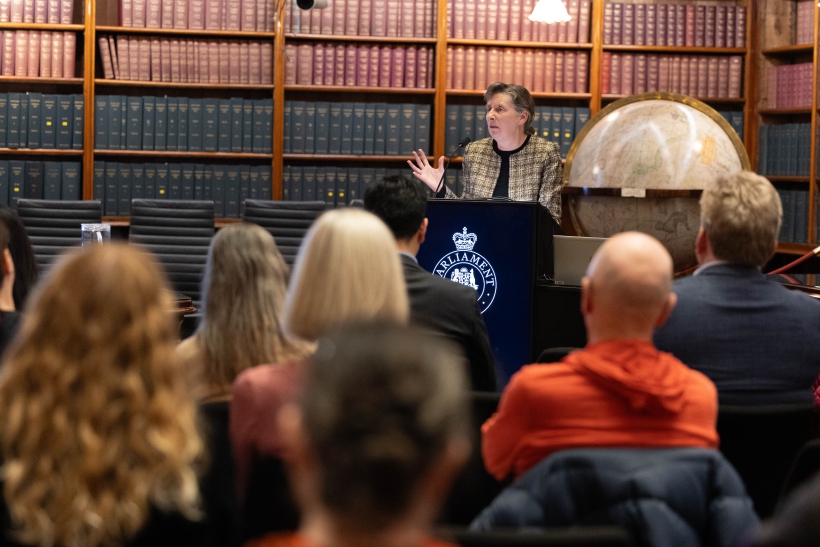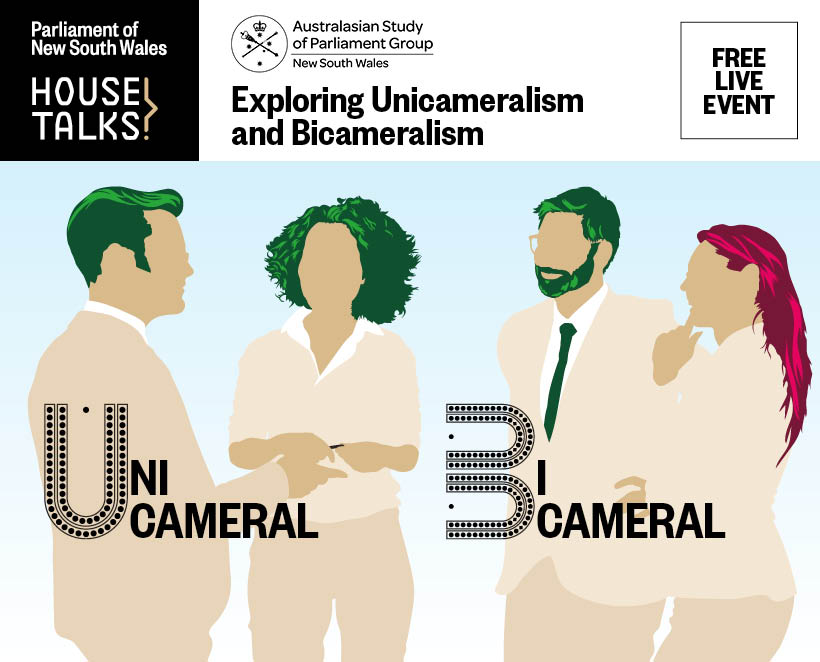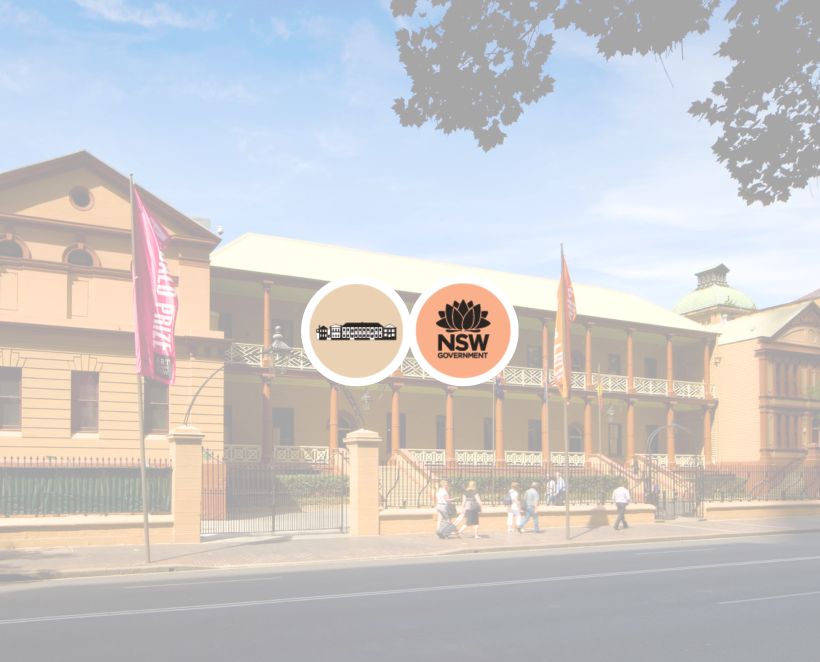
The NSW Parliament was founded in the Westminster tradition. Under this system of government the Parliament and the Government are two distinct groups. You can be a member of Parliament without being a member of the Government! So, what is the difference?
The NSW Parliament is made up of all of the members that have been elected to the Legislative Assembly (lower house) and the Legislative Council (upper house). Both houses are elected using different systems to ensure the people of NSW are adequately represented.

In the Legislative Assembly each member represents an area of NSW and is voted in by the people that live there
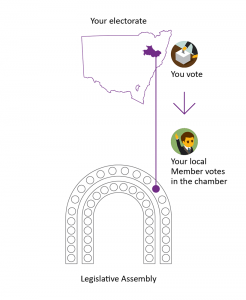
In the Legislative Council each member represents a proportion of votes received across the whole state:
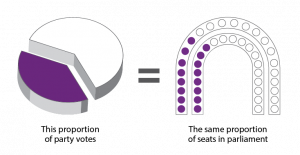
The role of the parliament is to represent the people of New South Wales and to make laws. The Parliament also checks up on what the Government is doing, keeping the Government accountable to the people of NSW.
Did you know?
The word ‘parliament’ is sometimes used to refer to the building where Parliament takes place and where parliamentary staff do their work. The NSW Parliament consists of three departments: the Legislative Assembly, the Legislative Council and the Department of Parliamentary Services.
When Parliament ‘sits’ members of Parliament from the Legislative Assembly and/or the Legislative Council meet in their respective chambers at Parliament House in Sydney. During these sittings the House conducts parliamentary business such as the introduction and debate of bills, Question Time, motions, private members’ statements and community recognition statements.
The Government is made up of members of the political party that won the most seats in the Legislative Assembly at an election. The Premier and all Ministers are also members of the Government.
The role of the Government is to develop state policy, propose bills that may become laws, and to put those laws into action. The Government also administer the government departments that provide the state’s services, ensuring they run efficiently and effectively.
Here is a cheat-sheet that captures the different roles both play:
|
The Parliament |
The Government |
|---|---|
|
|
- Learn more about Parliament, government and the separation of powers


